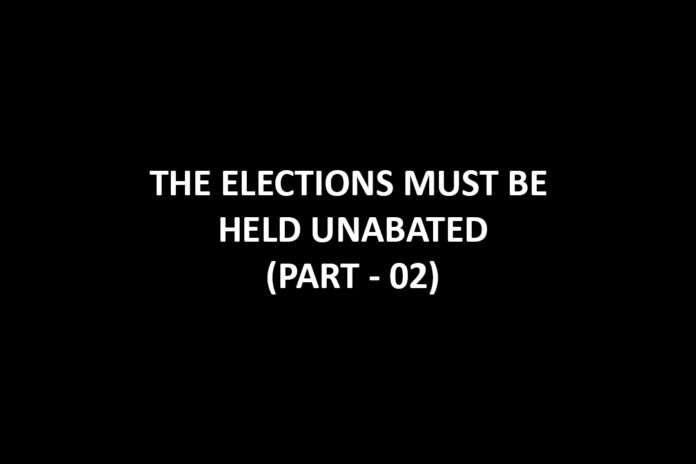The ousted leader of the Opposition, Imran Khan seems to have won this round of gaining the verdict of the elections in his favor. One has to agree to the point that he is well within his rights to make these demands.
Many believe that if General Elections are held in October 2023, Khan would triumph once more. Regardless of the predicted pyrrhic victory, and once the long-running drama is concluded, there will be much fire-fighting to undertake at an emergent level to resurrect a failing economy. Having said that, many of his supporters lost faith in him when he unexpectedly made enemies of his friends and supporters via trudged up allegations and false narratives, often sidelining competent advisors whilst shuffling cabinets at whims. Much of this mistrust in leadership was exacerbated when Khan and his party mismanaged foreign policy. Clearly, the country was headed for a diplomatic debacle due to conspiracy theories, many of which have now shifted their views.
An article published in Time magazine recently said, “If Pakistan’s economic woes are reaching a new nadir, the trajectory was established during Khan’s term. A revolving door of Finance Ministers was compounded by bowing to hardliners.” This is a clear indicator of how the previous government is also to share the blame for the current economic meltdown. Even if IK wins the grand match against the PDM, would he rather spend the rest of his victory on witch-hunts or alter his mistakes into a learning point to contribute to better governance this time around.
The PTI government did attempt to improve and bring about good change in the nation, but many of their policies remain under scrutiny due to what people claim are inflated media optics and less implementation. One thing that must be noted was his pandemic policy had, and is still lauded as a great success. One must acknowledge they did deliver the nation through to safety by well planned strategic measures.
The underlying unrest currently is being caused by fear of a move towards a Presidential form of government – as the rumors would suggest. Who is pulling the strings is hard to decide, but whoever wins the elections would have absolute power, making the elected president a “force majeure” if this were to occur. Having said this, it is pertinent to note that a majority of developed countries have Presidential forms of government while most third world countries have the Parliamentary system. Pakistan has experimented with the latter with minimal progress, while the former has been used by military men with unconstitutional ambitions.
The overthrow of democracy under the pretense of granting democracy, which was never the case — directly caused the country’s political and constitutional system to disintegrate. The continuance of the Parliamentary system may never suit Pakistan’s progress which is how political parties have always divided, negotiated with each other and rested themselves by sectioning rule of law for each state individually.
The Presidential mode of government will always be a ‘threat’ for those not in power as it will dissolve the form of shared power which has suited all political parties till date. What Pakistan needs in these strange times is an acute leader who understands high-level security situations and is willing to take decisions for the good of the country and not only religious sentiments.
Khan’s government is unlikely to be able to set foreign policy, economy, defense and military strategy, or safeguard from external threats if elected again, as it has already been seen in his previous stint. Whoever comes to power, or as many now say in jest, “is crowned King,” must be someone with a strong will having the trust and faith of the people.
Despite its negative reputation in Pakistan due to its history of being misused as a political front, a future Presidential system might prove to be better in providing stability and efficiency in the decision-making process. It could be of help to address political and economic issues by restructuring government procedures and reducing the influence of political parties’ abuse of the system.





